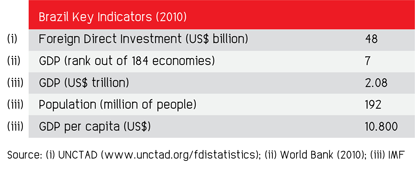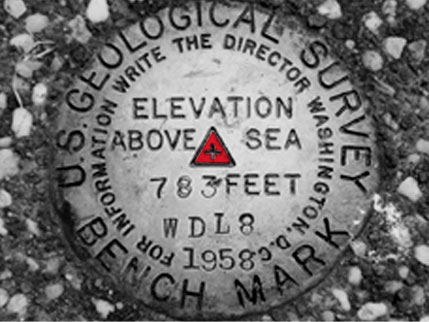Brazil's economy is expanding its presence in world markets and despite economic growth there is severe lack of infrastructure investments that hinder the country's objective to become a serious player in the global economy.
Brazil is currently the 6th largest economy in the world (World Development Indicators Database, World Bank, Sept. 2010) and by far ranks first in Latin America. Characterized by large and well-developed agricultural, mining, manufacturing, and services sectors, Brazil's economy outweighs all other economies in the region.
Growing demands for commodities and natural resources (oil & gas, ethanol), cross-border M&As, enhanced incentives and regulatory changes with simplified procedures have facilitated Foreign Direct Investment (FDI) in Brazil. The Brazilian economy friendliness to foreign capital and liberalization continues to take place; in contrast to some protectionism emerging in Bolivia, Ecuador, and Venezuela.
FDI 2010 inflows to Brazil reached US$ 48billion compared to US$ 156billion for the entire Latin America according to United Nations Conference on Trade and Development (UNCTAD) estimative.

For the period of 2012-2016 Brazil's infrastructure projects will require US$82 billion investments and these funds are not allocated in the central government budget. As a result the Brazilian government encourages Brazilian pension funds as an intelligent partner for funds targeting infrastructure projects. Furthermore, Brazilian pension funds have announced their strategic intent to associate with foreign entities to take part in the country's infrastructure development.
The government's commitment to restore investors' confidence can be shown in several areas and increased foreign confidence has driven the country risk perception downwards, rising future economic expectations.






